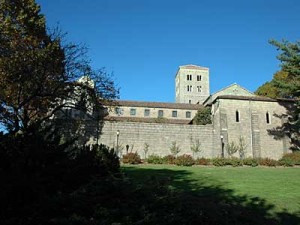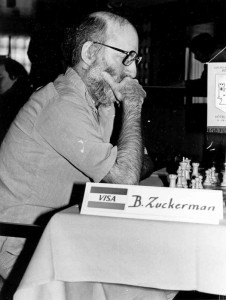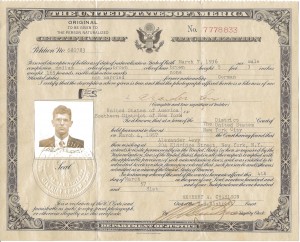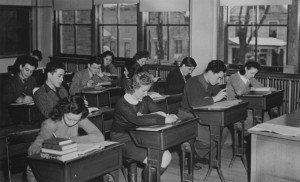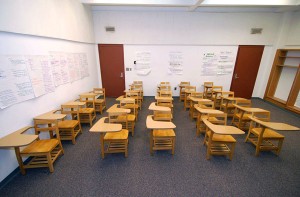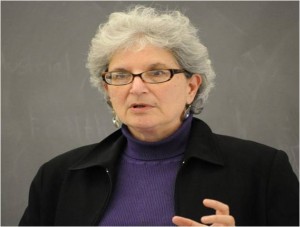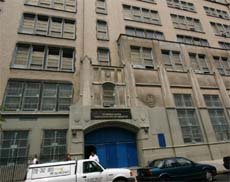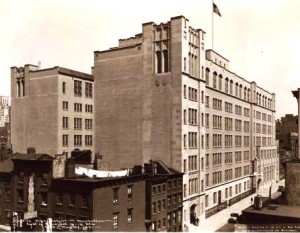Don’t know if this belongs here, but I had fun writing it, and it seemed a shame to waste it.
It is now 2:47 AM, and I’m having a bit of problem sleeping. I’ve just come back from Englewood Hospital after having had a gall bladder removed. No matter which side I lie on, there are aches and pains, in addition to which I took a couple of naps during the day, and so here I am, in the middle of the night, typing away on what it was like to be a real patient in a real hospital and emerging with one organ less than when I was admitted, in considerable pain, late Sunday evening. The last time this had happened to me was in 1941! But soon after I had undergone “triage” (I think that is what the procedure is called), the medical staff put me on a regimen of morphine, and soon thereafter the pain decreased somewhat, without disappearing altogether. The most awful part of the process was drinking the two ten-ounce cups of liquid needed for the CAT scan. My stomach was killing me, and here I had to drink these two cups. . . Vile! Totally unpleasant! For some reason I can’t recall I wanted to tell a funny CAT scan story to the technician in charge. I knew several, but I couldn’t remember any of them at the time. So much for the inveterate story-teller.
When I was finally delivered via gurney to a room I was to share with an elderly man who spoke no English, I was in no mood for company, noise, conversation, or lights. And so began a small, living nightmare. The man would ask for something in a foreign language, which was then translated by his daughter for the nurse, who when she replied also had to be translated by the daughter for the benefit of her father. Every word said, every question asked or answered, came in triplicate, and this lasted until the family left in the morning. It was incredibly painful. Of course, lights went on and lights went off haphazardly, while all this was going on. Morpheus, even helped by morphine, wouldn’t visit me.
After this busy, bilingual family had left, Linda (my wife, if you haven’t met her) arranged for me to get the window half of the room, and things quieted down for a while. Then an elderly couple moved into the room, I believe they were of Japanese origin, and I have no idea which one of them was the patient, as they both slept in the same bed. Possibly they hadn’t been told that this sort of thing wasn’t done in American hospitals, or possibly they had been told, but simply didn’t understand. In any case, they seemed cozy in the one bed. They also seemed to enjoy playing with the room light switch, but by then I had learned to ask for a sleeping pill, and I was feeling somewhat better, my offending, gangrenous gall bladder having been removed. The man, however, loved making precise and perfect little origami boats and planes and spent much of the time making them. I could make those also, had learned to make them in kindergarten, but the ones the Japanese man made were things of beauty. However, man and wife soon departed, and I was left alone in the room. The only other patient to arrive in the room somewhat later was an Italian man, a television aficionado with a heart condition, and many stubby, Italian women with incipient mustaches to attend to him. This, not being a cardiac room, he was soon moved elsewhere, and I didn’t miss him or the TV.
Of course, Linda and my children, and later my grandchildren, and some friends, came to visit and were extremely solicitous, which for the first time in my life I did appreciate because for the first time in my life I really was in no condition to do much for myself. Sometimes one does need others. And of course, I was kept very busy answering my e-mail and Facebook messages, although I couldn’t find my Scrabble games on FB. I must admit I was never bored. With all my electronic toys, there was so much to do!
One of the surprising things about this hospital stay was how much I enjoyed peeing in long plastic bottles, and not having to walk to the bathroom during the night. Why had no one told me about this wonderful implement during my camping days, when long walks through the woods in the rain, were often required in the middle of the night?
One of the fun things that happened was a volunteer who came, I believe, to inquire about my spiritual well-being, and asked me of which faith I was a member, whether Christian or Jew. I told her I was a Pastafarian. She entered that on her clipboard, but needed a bit of help with the spelling, with which Jennie (my daughter) helped her. She wanted to know who and where Pastafarians worshiped, whether in churches, temples, or synagogues, and I told her that we worshiped the Flying Spaghetti Monster, who had created the world, and that we worshiped in almost any kitchen, but that we preferred Italian kitchens for obvious reasons. I also told her that on special festivals we wore sieves on our heads. She was surprised by all this, admitted that she had never met a Pastafarian before, and that she would enter it into the hospital’s database of religious affiliations. I was also going to tell her about the pirates and the global warming thing, but decided against it. Although it was fun while it lasted, I had second thoughts about it,, as here was this lady who all she was trying to do was to help me, and here was I, making fun.
I was much better behaved when another well-meaning woman walked into my room and asked if she could pray for me. She startled me at first, because she resembled Whoopie Goldberg in a blonde Orphan Annie wig. She also looked a bit like my last principal. She (not my former principal) too asked me whether I was Jewish or Christian, and I told her I was both. So she clasped her hands, looked ceilingwards, and sent up a prayer for me in which Jesus featured prominently, but so did the soles of my feet for some odd reason. It could have been that I didn’t hear her quite correctly as I wasn’t wearing my hearing aids, but nevertheless, having never been prayed for before, it was a new and interesting experience.
Anyhow, now I’m home and sleepless, and I have my computer to play with. Possibly the prayer worked!


